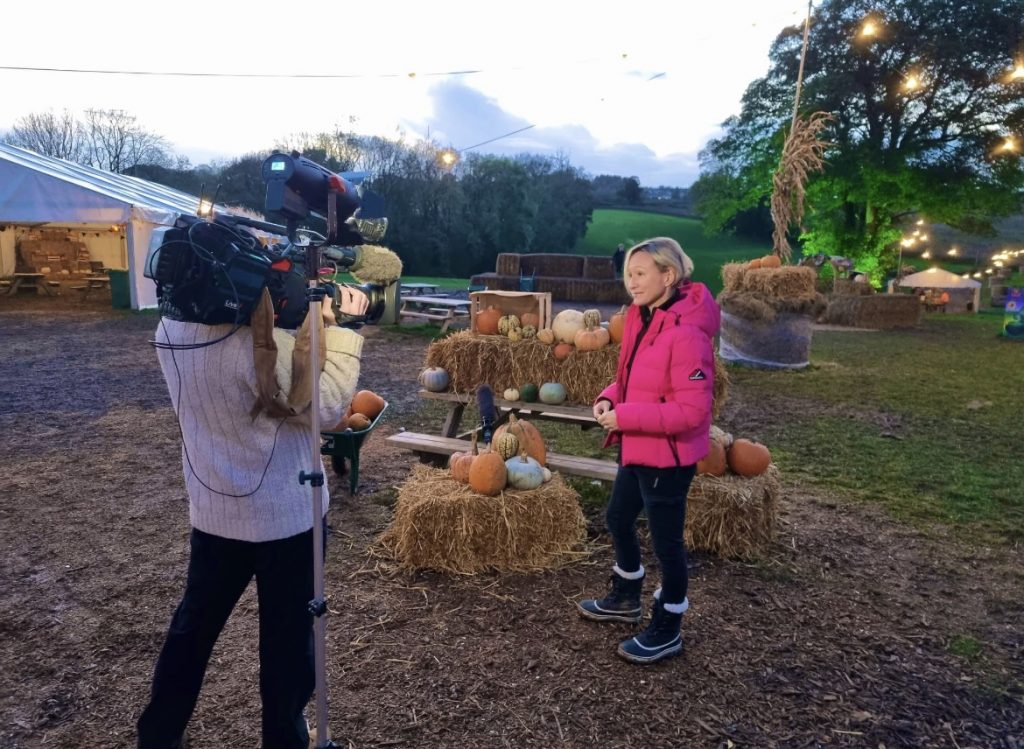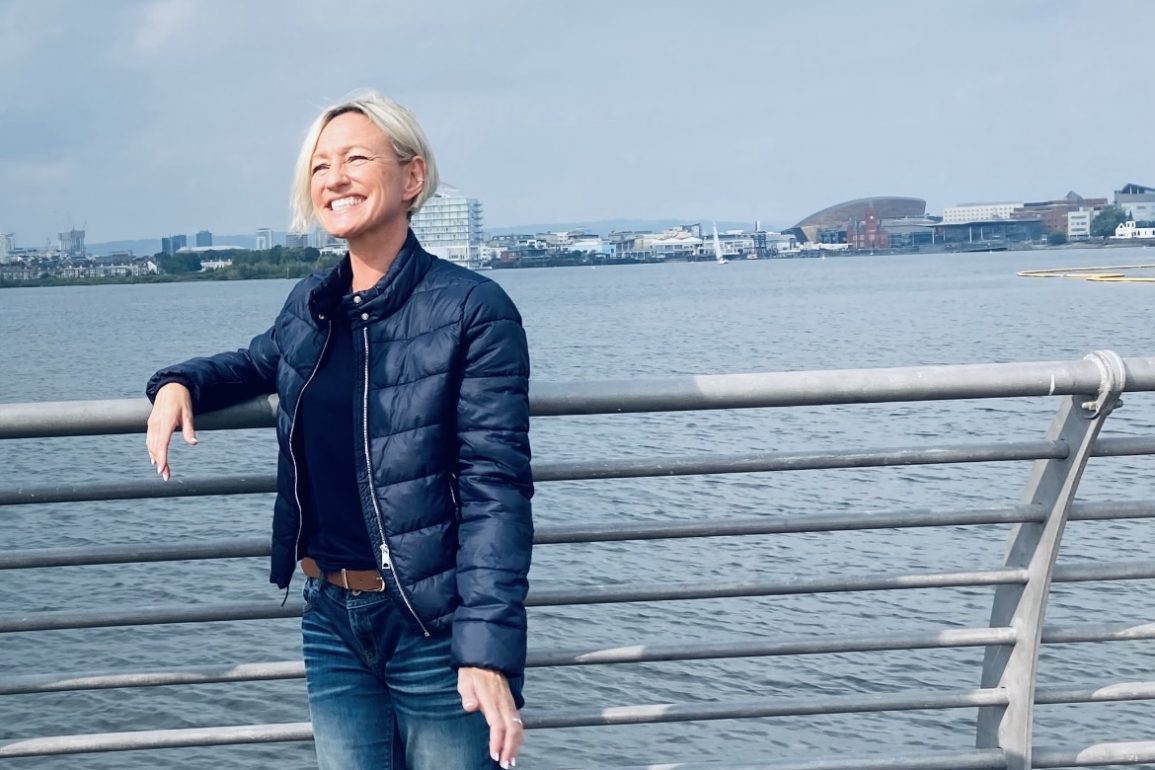As domestic abuse cases rise over Christmas, Cardiff charities believe the presenter’s experience is valuable to many across the country
A FRIENDLY face from the TV, Ruth Dodsworth has been using her platform to raise awareness on coercive control.
This interview comes as domestic abuse rises significantly during the Christmas holidays, as people tend to spend more time with their partners. Higher alcohol consumption and financial worries also contribute.
Reports indicate that one in three women will experience abuse in their lifetime and, as difficult as it may be to hear, the conversation needs to continue.
In October 2019, Ruth’s ex-husband was sentenced to three years in prison after subjecting her to a decade of domestic abuse and coercive control.
The ITV presenter said: “I was just living completely on eggshells, living in fear, just waiting for the next phone call whilst trying to keep up the day job, keep up the facade and just living an exhausting double life.”
Ruth, 46, explains how hindsight made her realise that there were signs of coercive control from the beginning of the relationship, but it was difficult to see at the time, as this form of abuse builds up over time.
Signs of coercive behaviour include an act or a pattern of acts of assault, intimidation, threats, or humiliation that is used to harm, frighten, or punish a person.
Hundreds of phone calls a day, to putting a tracker on her car – this is the type of behaviour she would be subjected to daily.
The night before her ex-husband’s arrest, she received a phone call from her children warning her not to come home as they feared for her safety.
Asking for help saved my life. But it didn’t just save my life, it saved my children’s lives, it saved my family and it has given me my life back.”
Ruth Dodsworth
She said: “I had gone to work as normal that Thursday morning, not really imagining what was going to unfold.
“I didn’t realise at the time, and it took a police officer when he was first arrested to say, well, actually, this is coercive controlling behaviour.
“The whole thing was just a complete and massive shock. It was overwhelming and frightening. But it was the best thing I ever did because it changed my life.
“I think if I hadn’t told the police, I wouldn’t be here now.”
Ruth, from Cowbridge, added: “Asking for help saved my life. But it didn’t just save my life, it saved my children’s lives, it saved my family and it has given me my life back.”

In Wales, coercive control only became a crime in 2015. At the end of March 2020, there were 24,856 offences of coercive control in England and Wales, which had risen 49% from the year before.
With her case, Ruth found South Wales Police extremely helpful and has since worked with them to help train officers to identify the signs of coercive control within relationships.
However, Ruth explains that she is still concerned for her future.
“That fear doesn’t ever go away. At some point he will be walking the streets and that’s something I’m going to have to deal with so, it’s every bit as much of a prison sentence for me as it is for him.”
Ruth now uses her platform to continue the conversation on coercive control and has recently become a patron at Hafan Cymru, which is a domestic abuse and housing support organisation.
It’s every bit as much of a prison sentence for me as it is for him.”
Ruth Dodsworth
She said: “By publicising my story and keeping the conversation going, I think there’s a realisation that it’s so important that we do have these conversations and we do keep it out there in the media.
“As uncomfortable as it is, so many people are going through what I went through and unless we talk about charities that are out there, unless we promote them, unless we shout it from the rooftops, a lot of people don’t know that they’re there.
“It’s a real honour, a real privilege to be able to team up with people and be a patron. It’s not something I ever thought would be part of my life, but now I’m just so grateful that it is.”
Chief Executive of Hafan Cymru, Sian Morgan, said in a statement: “We’re thrilled to be working with Ruth. As someone who truly understands that anyone can find themselves in a domestic abuse situation, we couldn’t ask for a more fitting person to work alongside us.”
Ruth also collaborated with Welsh Women’s Aid last December, on an ITV programme called Wales This Week: Tackling Coercive Control, in an effort to raise awareness on this form of domestic abuse.
Welsh Women’s Aid is an organisation that supports women who have endured domestic abuse, sexual assault, or any other type of violence.
Sophie Weeks, a spokesperson for the charity said: “This type of abuse often escalates slowly over time and as such can be difficult for a victim to identify. This makes awareness raising vital and Ruth’s ability and commitment to sharing her experiences so valuable to many individuals across the country.
“We feel enormously privileged to continue our work with Ruth and look forward to helping facilitate more conversations about the complex impacts of coercive control, reassuring survivors that they are not alone and highlighting the lifesaving, life-changing support that is available in Wales.”
Llamau is also another charity that helps people seek refuge from domestic abuse in the South Wales area.
“Christmas is always a difficult time and traditionally we find women try to make the best of a very difficult situation for their children. This often involves staying with the abuser to try and allow the children as best a Christmas Day as possible – sadly this doesn’t usually work and we see a rise in safeguarding calls and need for refuge soon after Christmas Day,” said Frances Beecher, CEO of Llamau.
The charity has accommodated 88 women and their families into refuges between April and September of this year.
Sadly, this is less than half of those who need help, as the ‘move on’ capacity is significantly limited. Therefore, many women and children are referred into homelessness accommodation with no specialist support.
Llamau refuges are staffed 24/7 for families who may need additional support, ranging from safeguarding, wellbeing, recovering from trauma and so much more.
If you or someone you know is affected by domestic abuse, you can call:
- Llamau on 08000 495 495
- Welsh Women’s Aid on 08088 010 800
- BAWSO on 08007 318 147
- Safer Wales on 02920 220 033



